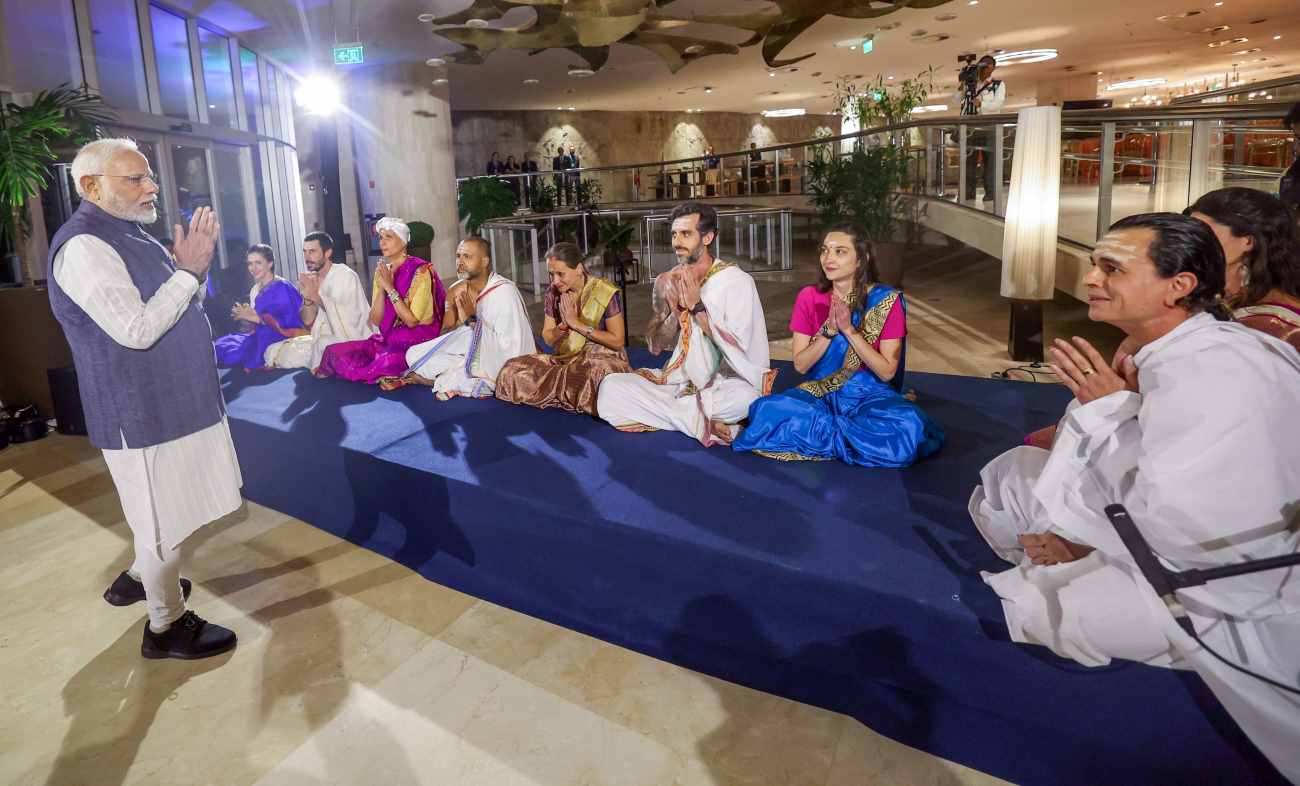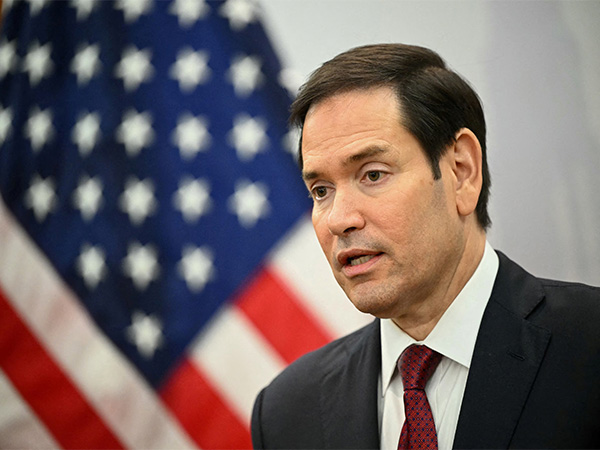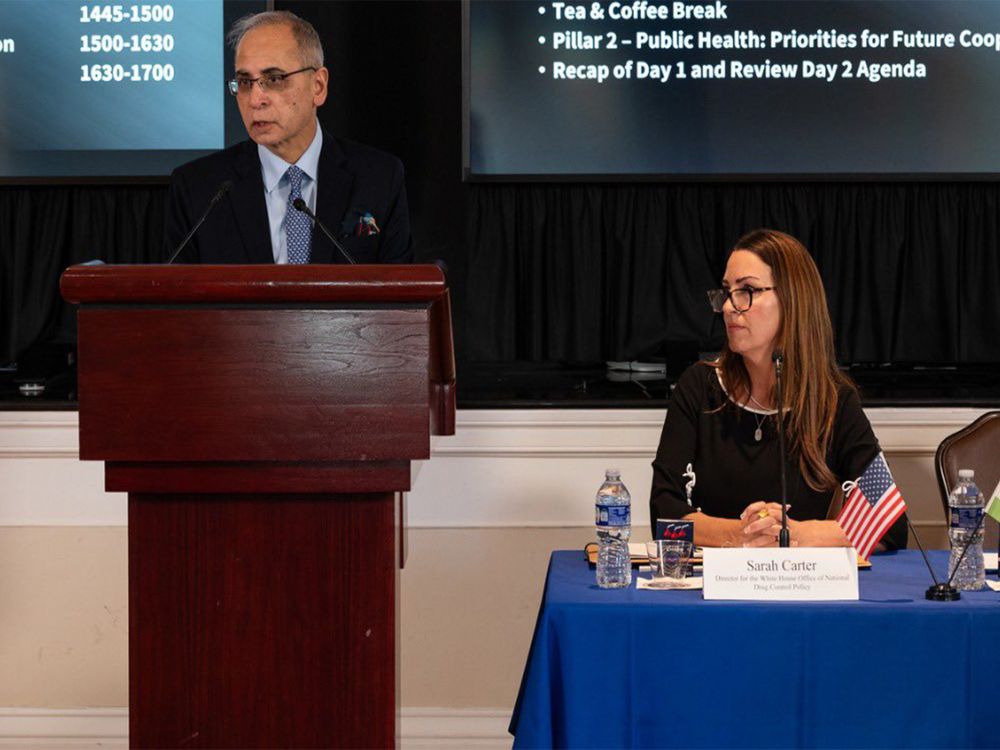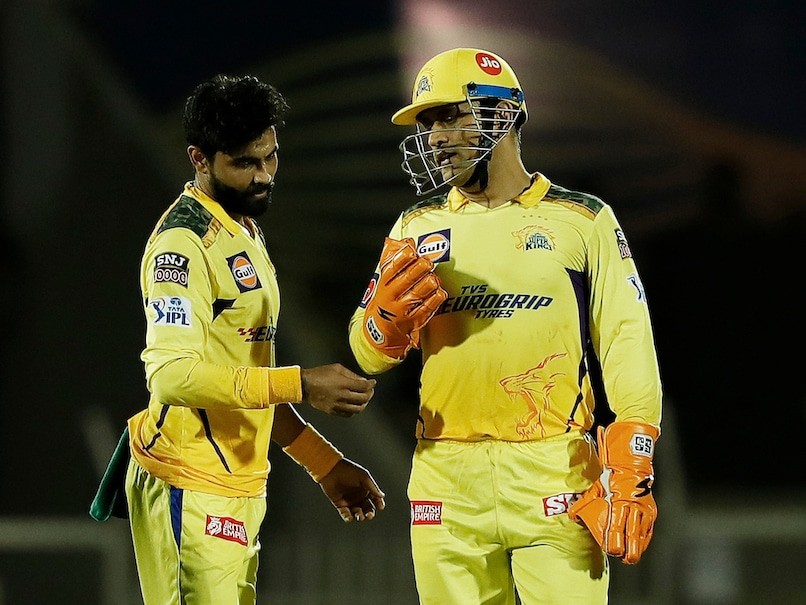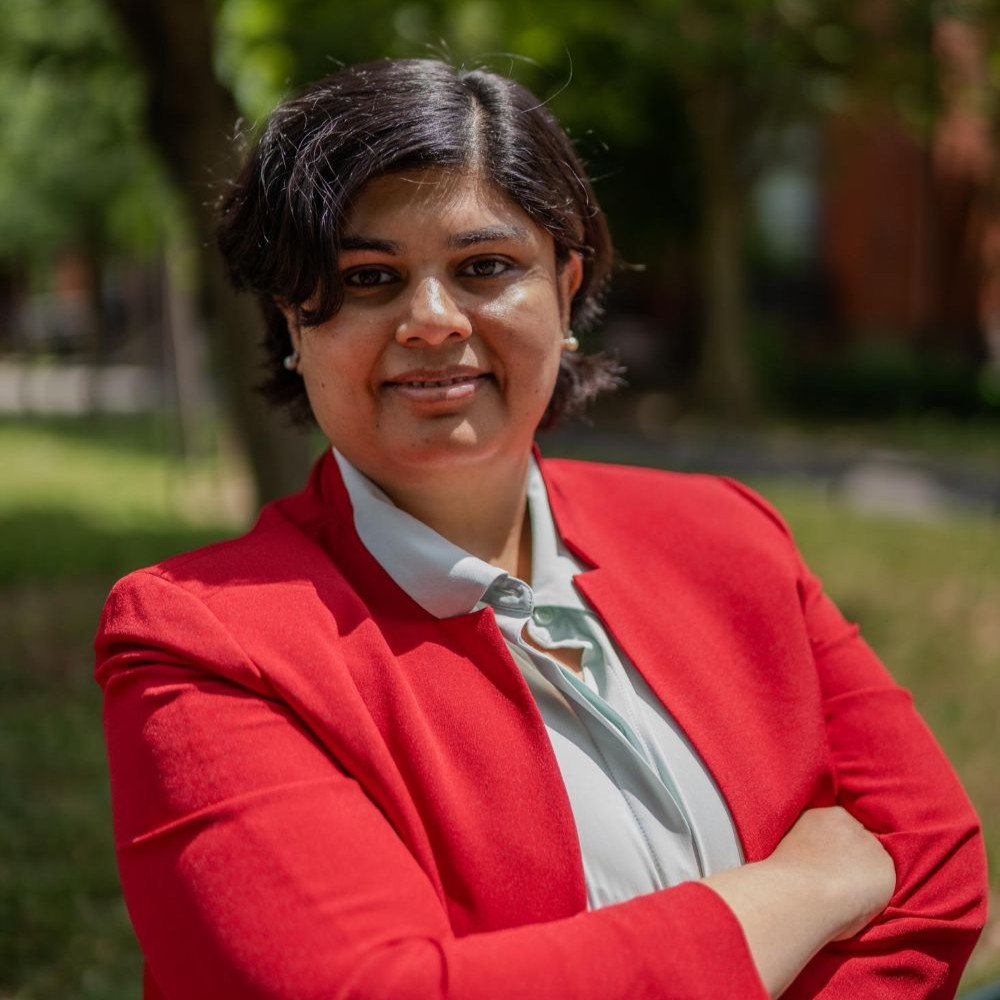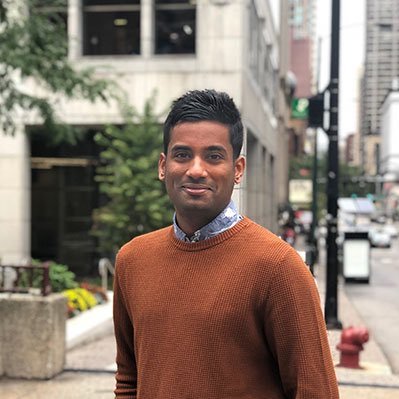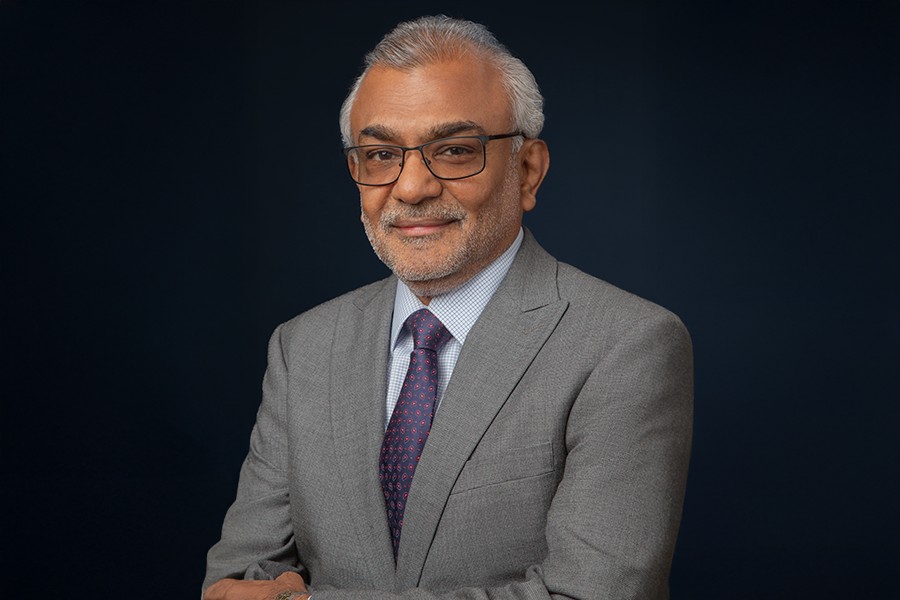Q&A with Acharya Jonas Masetti, the Padma Shri awardee from Rio de Janeiro, Brazil
The government of India announced on January 25 that Vedanta scholar Acharya Jonas Masetti, also known as Vishwanath, a resident of Petrópolis in the state of Rio de Janeiro, will be honored with the Padma Shri Award, one of the highest civilian honors, for his contribution Indian spiritual traditions. Acharya Jonas has been teaching Indian philosophy to thousands of Brazilians at the Vishva Vidya institute in Rio de Janeiro.
The scholar has dedicated his life to spreading the message of Vedas around Brazil and across the world. Vedanta, as explained by Jonas Masetti who studied the subject for four years in India – is the ancient knowledge that comes from that country and that helps people to find peace and inner balance independent of the outside world. In an interview with Shobhan Saxena for The Indian Eye weekly, the Vedantic scholar talks about the significance of the Indian award, his meeting with Prime Minister Narendra Modi during the recent G-20 summit in Rio and his future plans. Excerpts from the interview:
You have been honored with the Padma Shri award by the Government of India. How do you feel about receiving this honor?
I feel deeply blessed and honored upon hearing the news of the Padma Shri. My immediate thoughts went to my gurus—Swami Dayananda Saraswati and Swami Sakshatkrtananda—who I believe would be very proud of how far this paramparā has reached. Even though our contribution here in Brazil may be small compared to the vast lineage that has blessed the entire world, this recognition points to the collective effort of our family, teachers, students, and sevaks who work together to share Vedanta and Indian culture in Brazil. It is not a personal achievement but a celebration of the entire team. I am especially grateful to witness how this ancient tradition crosses borders and touches the hearts of people from diverse backgrounds.
You have been honored for promoting India’s spiritual tradition, Vedanta, in Brazil. How do you look back on your journey in spreading Vedantic traditions there?
When I first returned from India, I had no idea if I could truly become a full-time teacher, or if people would show enough interest in a tradition like Vedanta in a foreign land. I was ready to commit myself for a year or two, and if it did not work, I thought I might return to India or find another way to serve the society.
To my surprise, within six to eight months, I had my first regular classes and a small team forming around me. My background in engineering, entrepreneurship, and technology helped tremendously: we integrated our classes with high-quality digital platforms, allowing more people to discover Vedanta. My teacher, Glória Arieira [Padma Shri awardee in 2020], has been teaching in Brazil for over 30 years; so, there was already a foundation. My role was to expand on that, traveling to different cities, sometimes giving talks to just five or six people and I did that wholeheartedly for some years.
About five years ago, everything grew rapidly—right around the time when Prime Minister Narendra Modi mentioned our work on “Mann Ki Baat.” We reached more than 200,000 students in intensive courses, which was beyond anything I had imagined. This expansion required a lot of hard work from an entire family of dedicated people, and it showed me how a serious, authentic approach to Vedanta can truly flourish anywhere.

You already have many followers. Now, after this award, do you see a growing interest in Vedantic philosophy in Brazil?
Yes, this award brings a sense of official recognition to our work and underscores its authenticity. For those of us living so far from India, there is often a feeling that we might be disconnected from the source. This recognition helps reassure our community here in Brazil—and abroad—that we are genuinely part of the paramparā. We hope it will encourage even more collaboration with institutions in India, facilitating opportunities for our students to pursue deeper studies in ashrams and Sanskrit universities.
I also believe it sends a strong message to younger generations, including those in India, who might have overlooked their own tradition. Coming from a Western perspective, I can testify to how crucial Vedanta is for living a balanced life—not just in terms of worldly success but in cultivating genuine well-being and self-knowledge. We need spiritual grounding to balance our modern, consumer-driven lifestyles.
Recently, PM Modi visited Brazil for the G20 meeting. You performed mantras and a Ramayana presentation in front of him. How was your experience and interaction with PM Modi?
It was an intense and deeply meaningful experience, even though the time we had with him was quite short. My wife, our students, and I wanted to offer our very best, with hearts full of gratitude. We have received so much from Vedanta while living outside of India, and this was a rare chance to give something back.
Performing the Ramayana in Sanskrit, showing the depth of each character, and seeing how PM Modi connected with that energy was unforgettable. He came to us afterward and said he would never forget this performance. We, of course, will never forget that moment either. He was kind, curious about our journey, and committed to promoting Indian culture. We also got to share our vision that Vedanta, as a tool for knowledge and healing, has not yet been fully established in the West, and he appreciated our efforts to bring it forward.
PM Modi mentioned you in his radio address “Mann Ki Baat” a few years ago. How did that help deepen your relationship with India?
It was completely unexpected. For all those years, our main focus had been to share Vedanta as broadly as possible while using the best technological tools available—podcasts, social media, online courses—to make these teachings accessible. We were a small team of around ten people, but we functioned as if we were a large organization, reaching thousands of regular students and hundreds of thousands in intensive courses.
When PM Modi mentioned our work on “Mann Ki Baat,” it highlighted that our efforts had resonated in India itself. Some Indian institutions and individuals also started to pay attention to what we were doing and opened their doors to us. It strengthened our ties with India and reaffirmed that even though we teach with a Western perspective, we remain faithful to the purity of the Vedic tradition.
You are now traveling more to the US. What are your plans to engage further with Vedantic followers and the Indian community in North America?
We have just launched our first regular online class in San Francisco, offering Vedanta in English from a Western perspective, which can speak directly to both Americans and Indians living abroad who might appreciate hearing these teachings through a slightly different cultural lens. We also plan to hold workshops, retreats, and live sessions throughout the year, creating a community of people who value this knowledge.
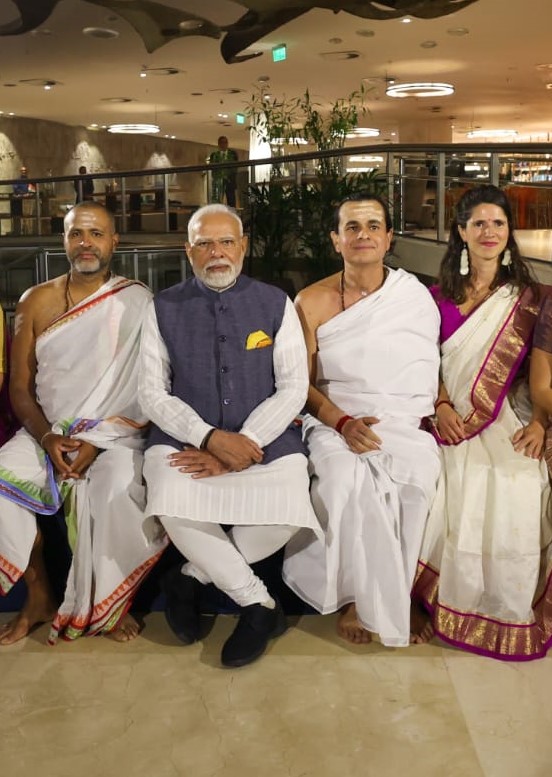
Additionally, Brazil itself is a very fertile place for spirituality—a country formed by many different cultures. We plan to invite students and seekers from all over the world to visit Brazil, stay in our gurukulam, and experience an immersion not only in Vedanta but also in some aspects of Brazil’s indigenous heritage. We see intriguing parallels between the ancient Amazonian culture and the Vedic view of life, and we hope to highlight these connections.
You have spent a lot of time in India. Now, you must be excited to travel back to receive this award…
It is truly a moment of celebration, and I hope to go there in April, once the dates are confirmed by the Indian government. This journey will not be complete until I am able to do a proper namaskāram to the gurus of our lineage. My plan is to bring our team of teachers and students along with other cultural supporters to celebrate together.
I want to take this opportunity to pay my respects to Swami Sakshatkrtananda in Rishikesh, as well as other Swamis from our tradition who have been the true torchbearers of this sacred knowledge. They are the real holders of the paramparā, and my receiving the award would mean nothing without bowing to them in gratitude. We also hope to share a bit of our Brazilian experience with local audiences in India, perhaps inspiring them to recognize the immeasurable value of their own tradition.
Throughout all these efforts, there remains one unchanging thread: the power of Vedanta to heal and guide us, wherever we live. If we approach it with humility and an open heart, this timeless wisdom can transform our lives. It is a blessing for which I am eternally grateful.
















